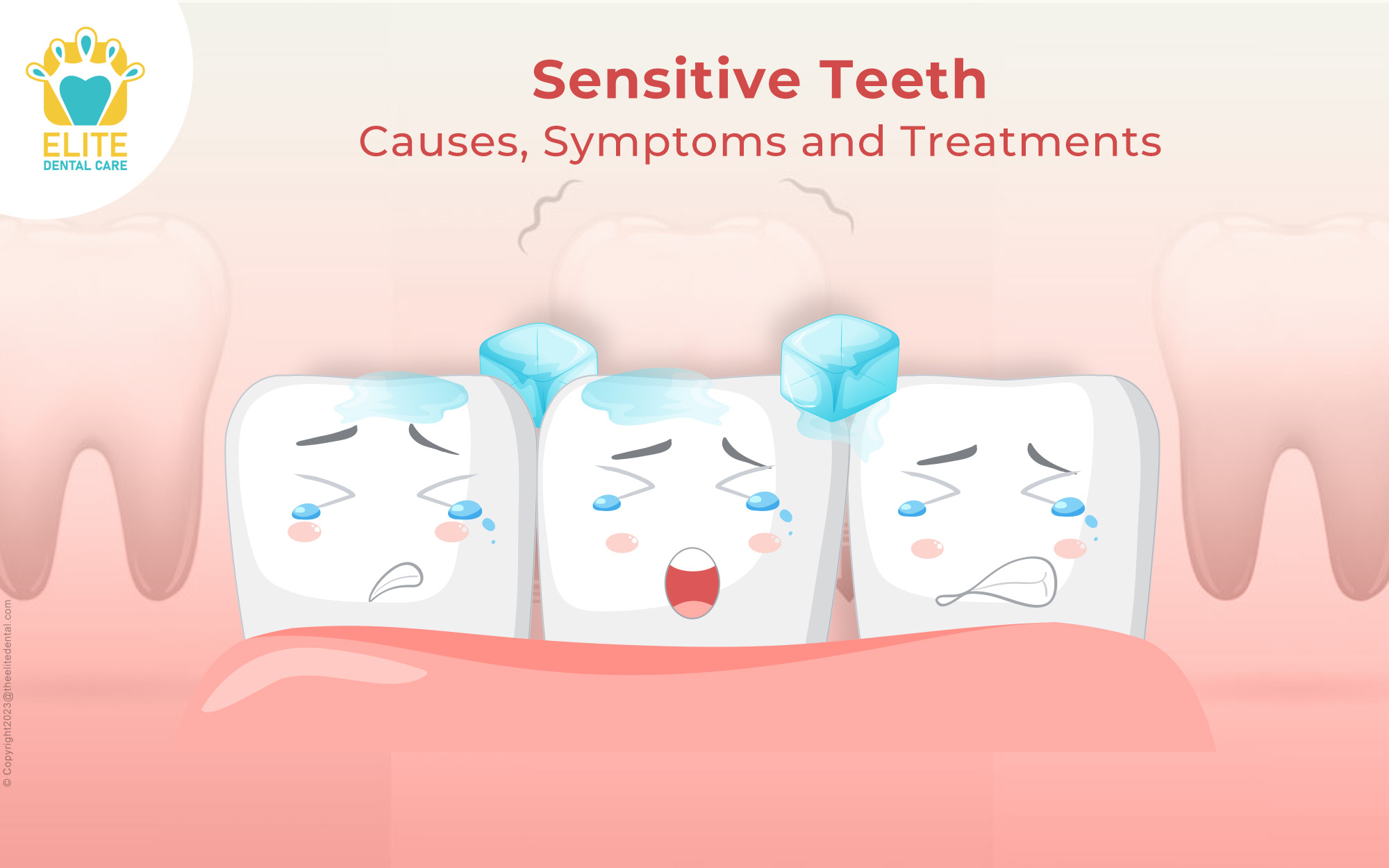
dental caredenturesflossinghygiene tipsoral healthTeeth Whitening
edental
27 March 2023
Sensitive Teeth Causes, Symptoms, and Treatments
An Introduction to Sensitive Teeth
Sensitive teeth can be a very uncomfortable and even painful experience. In some cases, it can even make it difficult to eat and drink. Sensitive teeth can be caused by a number of different factors, and it’s important to understand what they are so you can best address them.
Causes of Sensitive Teeth
There are several causes of sensitive teeth, including wear and tear of the enamel, gum recession, cavities, teeth grinding, receding gums, and cracked teeth. For some, sensitivity to cold or hot foods and beverages is a symptom of a much larger dental issue.
When it comes to enamel erosion, is caused by the acid in food and drink that can wear away the outer layer of the tooth. This can occur from consuming acidic foods or drinks, brushing your teeth too hard or with a toothbrush that is too hard, or even from dry mouth.
Gum recession is when the gum line pulls away from the teeth, exposing the tooth’s root. This can occur due to gum disease, uneven wear on the teeth, or aggressive tooth brushing.
Cavities are caused when bacteria form a sticky film on the teeth and feed on the sugar and starch that you consume. This leads to the formation of acid and cavity formation.
Teeth grinding is a habit that many people have while they are sleeping. This can cause wear and tear on the enamel and can lead to sensitivity.
Receding gums are when the gum tissue pulls away from the teeth, exposing the tooth’s root. This can occur due to gum disease, natural aging, or aggressive tooth brushing.
Cracked teeth can occur due to injury or from biting down on something extremely hard. This can cause sensitivity because the nerve that is inside the tooth can be exposed.
Symptoms of Sensitive Teeth
The typical symptom of sensitive teeth is a sharp, sudden pain or discomfort when consuming hot or cold foods or beverages. In some cases, the pain may linger for several seconds after the temperature of the food or drink has changed.
Treatments for Sensitive Teeth
Treating sensitive teeth will depend on what is causing the issue. If you are experiencing sensitivity due to enamel erosion, your dentist may recommend switching to a toothpaste that is designed explicitly for enamel protection.
If gum recession is the cause, your dentist may recommend having a scaling and root planing procedure done, which involves gently scraping away plaque and tartar buildup, as well as smoothing the root surface.
If cavities are causing your sensitivity, your dentist may recommend a filling or crown. Teeth grinding can be addressed with the use of a mouthguard that is worn during sleep.
To help prevent receding gums, your dentist may recommend brushing with a soft-bristled toothbrush and using fluoride toothpaste.
Finally, cracked teeth can be repaired with crowns or bonding.
Conclusion
Sensitive teeth can be a very uncomfortable and even painful experience, but with the right diagnosis and treatment, it doesn’t have to be. If you are experiencing sensitivity, it’s important to speak with your dentist right away so that you can determine what is causing the issue and receive the appropriate treatment.




